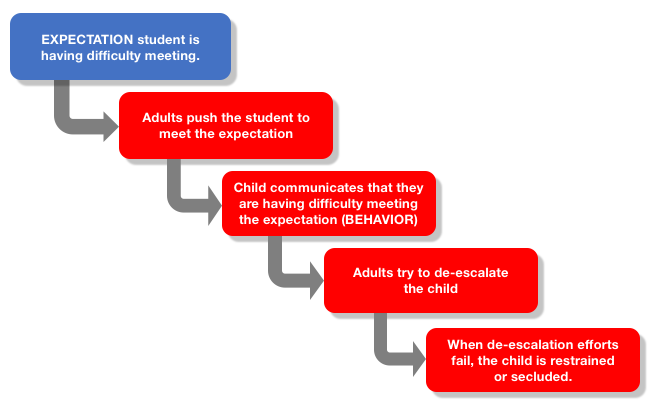If you want to prevent crises rather than manage them, then you’ll need to be almost totally proactive — in other words, early — in your approach to helping your students. Kids escalate when they’re having difficulty meeting certain expectations. Once a kid starts escalating or has already spun out of control, you’re late…an unmet expectation (or what we call an unsolved problem) has already occurred. So de-escalation is late…and restraint and seclusion are very late. We need to get you out of the heat of the moment. In this next video, Dr. Greene describes how to get there, and explains the Sequence of Restraint and Seclusion depicted belo

To help you be proactive, the CPS model involves using a simple instrument called the Assessment of Lagging Skills and Unsolved Problems (ALSUP) to help you identify — yes, exactly — a student’s lagging skills and unsolved problems. That’s the information that’s been missing. The ALSUP should become the standard pre-referral, triage instrument in your building. And in this video, Dr. Greene explains how to use it.
(You’ll probably want to reference the ALSUP while you’re listening…you can find it here.
